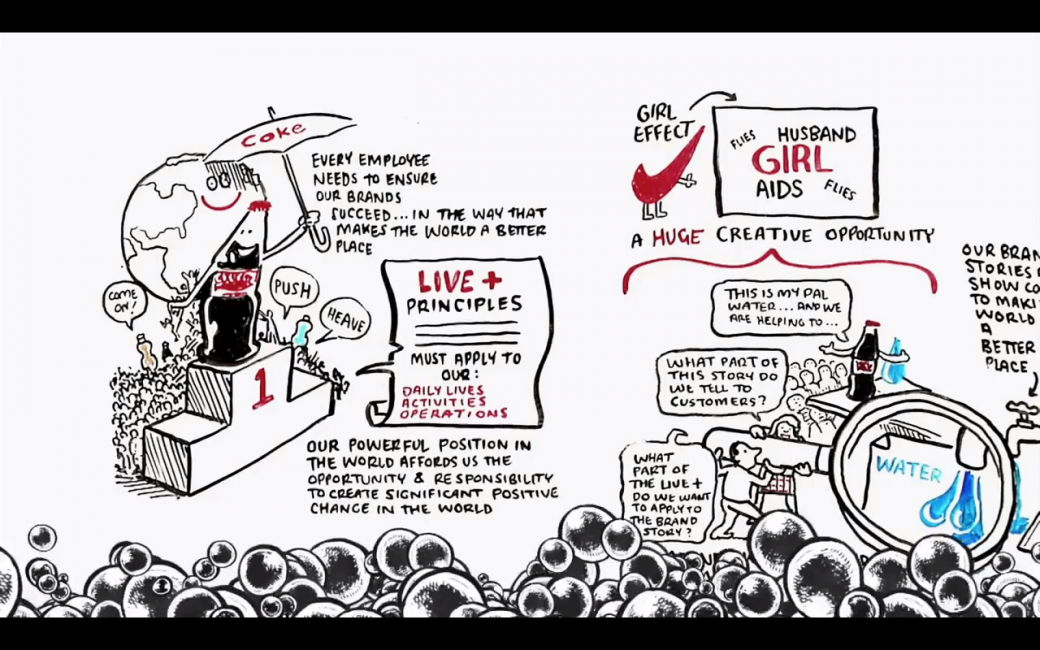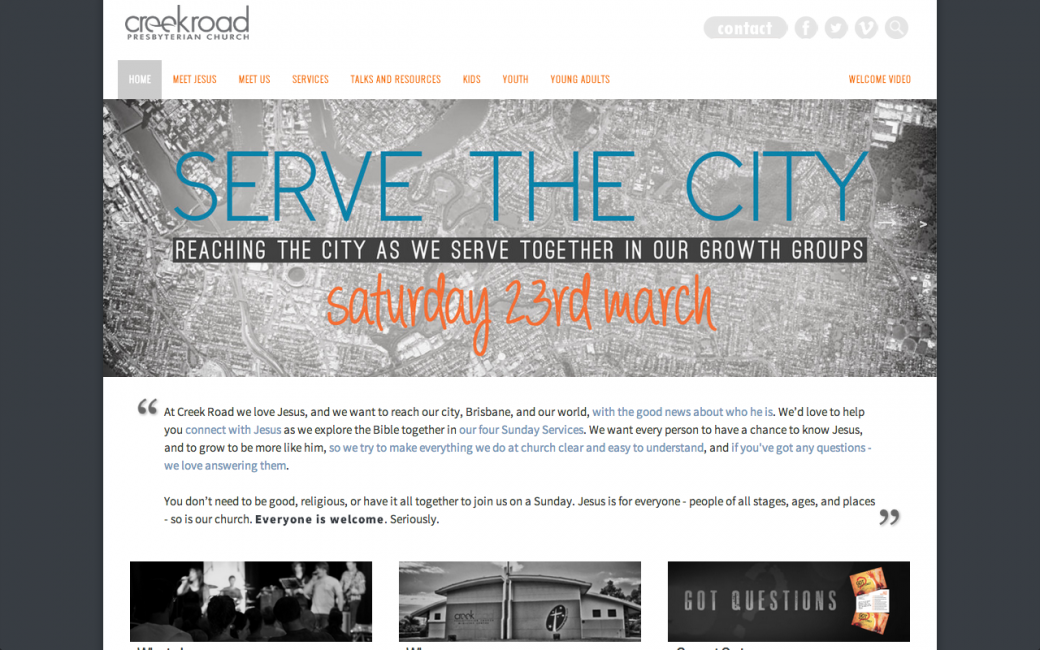I don’t know about you, but I find the idea that the outcomes of my life are determined by my biology – something I have no control over – pretty repulsive. It robs me of my individuality, my identity is chosen for me… who’d want to live like that?
The whole “born this way” juggernaut has been rolling for a while now – championed, most famously, by Lady Gaga and her anthemic Born This Way…

Image Credit: Mashable
I reckon the best bit about Easter Sunday – and the resurrection – is that it kills the idea that “born this way” cuts it when it comes to deciding who we are.
The song isn’t just musically problematic – it’s also both anthropologically problematic and theologically problematic.
The anthropological problems with Born This Way
Let’s take the anthropological issues first – because their solution shows why Christianity is actually one of the most progressive accounts of what it means to be human competing in the intellectual marketplace…
In the Bridge of Gaga’s song, we’re given a comparison between race, gender, and sexuality that many of us take for granted – and each is said to be both innate (something we’re born with), and essential (something that defines part of our essence).
“Don’t be a drag, just be a queen
Whether you’re broke or evergreen
You’re black, white, beige, chola descent
You’re Lebanese, you’re orient
Whether life’s disabilities
Left you outcast, bullied, or teased
Rejoice and love yourself today
’cause baby you were born this way
No matter gay, straight, or bi,
Lesbian, transgendered life,
I’m on the right track baby,
I was born to survive.”
Doing what our genes tell us – what our birth gives us as “default” is something that we should apparently embrace without question as “the right track” which will apparently lead to our surviving (especially if we love ourselves).
That’s a level of biological fatalism that I’m uncomfortable with – and I’m the sort of Christian who takes such a high view of God that I sign up for predestination. I’ve got no qualms with agreeing that people are born with a race, a gender identity, a physical gender, and a sexual orientation, and that these are complicated, and that our society should not just accommodate people with whatever biological permutations and inklings the complex biological sequencing that makes humans humans throws up, but see people as people. Equal. Complicated. Messy. Broken. No matter what state we’re born in – choosing “straight” or “gay” or “bi” or anything as a marker of identity, on the basis of biology is, I think, a silly use of labels. Especially the “straight/not-straight” binary – if you’re going to bring a Christian account of humanity and sexuality to the table – we’re all sexually broken. Anyway, I’m drifting into theology…
When it comes to the “born this way” argument, It’s politically useful to keep trotting this line out when you’re fighting for whatever “rights” or “equality” you want to be tied up with something you’re born with. How can we argue with biology, mother nature, God, or whatever entity we choose to ascribe such a choice, and such control to… Gaga gives God the credit..
I’m beautiful in my way
‘Cause God makes no mistakes
I’m on the right track, baby
I was born this way
And we’ll get to the theology later.
But what sort of life does this leave you leading? What about one’s capacity to move beyond one’s station – what about liberty and the pursuit of happiness? What if deep down I don’t want my biology.
The whole born this way thing is clearly ridiculous as soon as you throw gender into the mix. If there are two aspects of gender that are biological – anatomy (your bits), and identity (how you are wired to think of yourself) – then which bit wins out? Typically it’s thought to be your identity – because the bits can be chopped and changed. But this is pretty arbitrary… It’s even more clearly ridiculous if we start suggesting that people are born biologically wired to all sorts of behaviours that are socially unpalatable – but that’s where the Bible goes… but again, we’ll get to the theology later…
Anyway. I read this interesting article from a blog called Social (In)queery suggesting maybe, just maybe, the GLBTI community should move beyond the “born this way” trope towards something a little bit more, well, freeing. Something that gives the individual a little more liberty to move away from their unchosen biological tendencies.
“The problem with such statements is that they infuse biological accounts with an obligatory and nearly coercive force, suggesting that anyone who describes homosexual desire as a choice or social construction is playing into the hands of the enemy.”
It’s worth a read. It’s about time people started thinking this way. The idea that we’re slaves to our flesh… err… I mean our “biology” is one of the more depressing outcomes of our modern naturalistic approach to human identity – and it immediately falls foul of what Hume called the “naturalistic fallacy” – he said we can’t say that something is how it ought to be, simply because that’s how it is in its natural state.
Who wants to be stuck being allergic to peanuts if that’s biological and can be fixed. We can’t force everybody to be fixed – that’s an equally dangerous flipside. But denying individuals the opportunity to make decisions about their own lives because we decree they have no choice in the matter because of their biology… Well. That’s an awful form of slavery.
The theological problems with Born This Way
The first theological problem with Gaga’s account of humanity is the idea that because it is “natural” it is something that God says is good.
That’s certainly not true for a Christian understanding of life in the world described by the Bible.
Sure. We were made in God’s image. But that was broken pretty early on. The whole point of the narratives in the Old Testament and God’s repeated use of sexually broken characters, who couldn’t be trusted to keep their sexuality on the straight and narrow (as defined by God at creation – one man, one woman, one flesh), is that all people are broken. That even those who are meant to be most explicitly bearing the image of God can’t. Or won’t. Or don’t. The patriarchs, the priests, the kings – they all stuff up. From Abraham (who pretends his wife is his sister and gives her to Pharaoh), to David, to Solomon… the big characters in the first half of the Bible are clear examples of this.
The OT stuff is relevant because people still want to claim that Paul made up the idea that people were broken, or that God’s image was tainted by what’s called “original sin,” when he wrote Romans. But Romans is completely consistent with every other description of humanity in the Bible. Especially the image of God stuff.
The idea that we have to obey our biology – without choice but with total compliance – is something Paul would describe as slavery. Here’s what he says in Romans 6.
16 Don’t you know that when you offer yourselves to someone as obedient slaves, you are slaves of the one you obey.
The best thing about Paul’s account of humanity is that he isn’t claiming to be anything other than a broken human himself. In fact – he claims to be just a normal bloke, a human, who experiences a struggle between two powerful internal forces – the residual bits of being a person made in the image of God, and the bits of him that want to serve his biological desires – his selfish genes – the genes that tell him that the way to be truly happy is to “love himself” because he is “born this way”… that’s slavery. Paul doesn’t want to be a slave to his nature (which he says is “sinful” – which he means leads him to do things that aren’t consistent with bearing the image of God)… but he can’t help it. Here’s what he says in Romans 7.
“I am unspiritual, sold as a slave to sin. 15 I do not understand what I do. For what I want to do I do not do, but what I hate I do. 16 And if I do what I do not want to do, I agree that the law is good. 17 As it is, it is no longer I myself who do it, but it is sin living in me. 18 For I know that good itself does not dwell in me, that is, in my sinful nature. For I have the desire to do what is good, but I cannot carry it out. 19 For I do not do the good I want to do, but the evil I do not want to do—this I keep on doing.20 Now if I do what I do not want to do, it is no longer I who do it, but it is sin living in me that does it.
21 So I find this law at work: Although I want to do good, evil is right there with me. 22 For in my inner being I delight in God’s law; 23 but I see another law at work in me, waging war against the law of my mind and making me a prisoner of the law of sin at work within me“
Paul is saying exactly what we should all be saying – the idea that we must conform to our biology to be truly happy is a limiting prison that defines our lives, rather than frees us.
We’re faced with two choices – when it comes to our anthropology – as humans. We can conform. Or transform.
We can be slaves to our broken nature – or even just to our biology if we want to reject the idea that our nature could possibly be broken. Whichever way you cut it – this is a form of slavery. Not liberty. If who you are is determined for you, not by you, and you have no choice, that’s awful.
Or we can try to transform ourselves in a positive direction – this might mean taking the path suggested towards biology-free sexual enlightenment described in the link above, or it might mean, if we’re like Paul, looking for some sort of rescue.
24 What a wretched man I am! Who will rescue me from this body that is subject to death?25 Thanks be to God, who delivers me through Jesus Christ our Lord!
This is where Christianity is truly progressive.
If the resurrection that will be celebrated all over the world tomorrow really happened. In history. If Jesus really is “Lord” – if he calls people everywhere to turn to him for their identity – which is the scope of his claims over people, if he is God, and became man, and died and was raised… If these things are true then the implications for every aspect of our lives – not just our sexuality, not even just our biology – are huge.
And we have a choice. It’s not forced on us – this reality being forced on people would bring the same lack of liberty that being forced to conform to your biological reality would bring. But it’s a choice about who to serve, and where to draw value and fulfilment from – flesh, nature, biology… or Jesus.
Paul might step out of the frying pan of slavery into the fire – but at least he’s making a choice. He says following Jesus is just another form of slavery (to righteousness, not the flesh), but a slavery of your choosing, a voluntary slavery, is, in his mind at least, superior to a slavery you can’t choose.
The delivery Jesus offers – the transformation Paul says he offers – is a stunning account of what it means to be human. To be free from biological obligation. To be free of slavery to things beyond your control. To find your value in something outside of yourself. To find your identity based on choice, not just biological complicity. And to have the image of God not just restored in your life – but renovated. Here’s how Paul opens chapter 8…
Therefore, there is now no condemnation for those who are in Christ Jesus, 2 because through Christ Jesus the law of the Spirit who gives life has set you free from the law of sin and death.
He starts fleshing out the anthropological and identity implications of this freedom. It changes what it means to be human.
How we think…
5 Those who live according to the flesh have their minds set on what the flesh desires; but those who live in accordance with the Spirit have their minds set on what the Spirit desires.6 The mind governed by the flesh is death, but the mind governed by the Spirit is life and peace.
Our future prospects…
11 And if the Spirit of him who raised Jesus from the dead is living in you, he who raised Christ from the dead will also give life to your mortal bodies because of his Spirit who lives in you.
Our identity – we’re not slaves, but loved children…
14 For those who are led by the Spirit of God are the children of God. 15 The Spirit you received does not make you slaves, so that you live in fear again; rather, the Spirit you received brought about your adoption to sonship. And by him we cry, “Abba, Father.”
Christianity offers a more compelling and progressive vision of what it means to be human because it’s not about conforming to something you can’t choose – that was chosen by the random intersection somewhere in space and time, of two people who carry the biological data that made you, who bring all sorts of genetic baggage, and leave you as a person made in their image – forced to embrace your biology… it’s about being transformed, voluntarily, into the image of the person space and time was created to host – Jesus – and becoming a loved child of God – a God who knew you, planned you, and loved you, before your biology started kicking into gear.
28 And we know that in all things God works for the good of those who love him, who have been called according to his purpose. 29 For those God foreknew he also predestined to be conformed to the image of his Son, that he might be the firstborn among many brothers and sisters. 30 And those he predestined, he also called; those he called, he also justified; those he justified, he also glorified.






